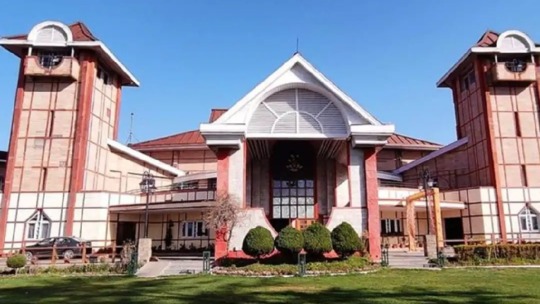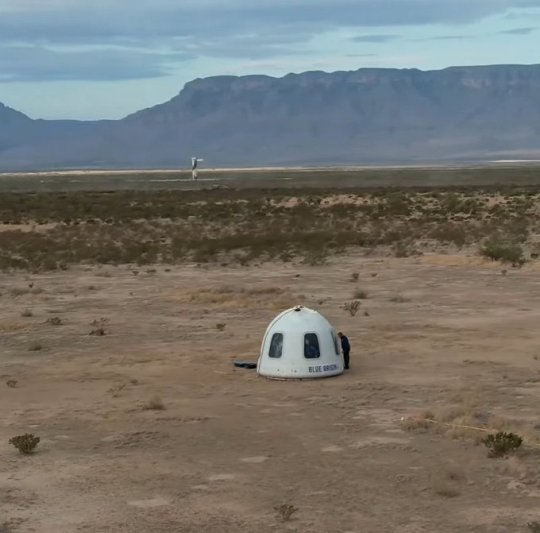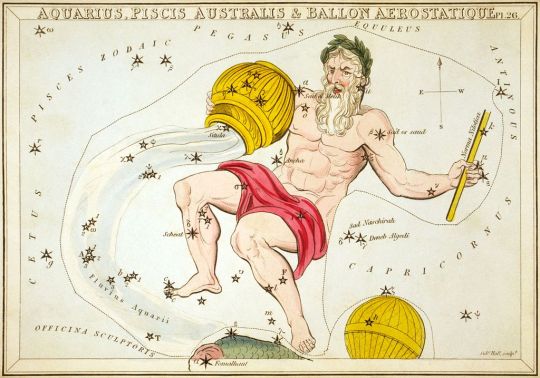#Tourism Development Corporation
Text
Maharashtra appoints IAS Manojkumar Suryawanshi as MD of Maharashtra Tourism Development Corporation; IAS M.V. Mohite as CEO of Smart City Pune.
Mumbai: In a recent reshuffle, two senior IAS officers have been assigned new roles in Maharashtra. IAS Manojkumar Suryawanshi has been appointed as the Managing Director of Maharashtra Tourism Development Corporation, Mumbai.
ALSO READ MORE- https://apacnewsnetwork.com/2024/07/maharashtra-appoints-ias-manojkumar-suryawanshi-as-md-of-maharashtra-tourism-development-corporation-ias-m-v-mohite-as-ceo-of-smart-city-pune/
#CEO of Smart City Pune#IAS#IAS M.V. Mohite#IAS M.V. Mohite CEO of Smart City Pune#MD of Maharashtra Tourism Development Corporation#Manojkumar Suryawanshi#Tourism Development Corporation
0 notes
Text
Taj Hotel to Grace Ranchi Skyline: Boost for Tourism
Tata Group signs MoU with Jharkhand govt for luxury hotel project
New Taj Hotel in Ranchi aims to enhance tourism, create jobs, and showcase Jharkhand’s potential on the global stage.
RANCHI – An important step forward for the hospitality industry in the state capital of Jharkhand has been achieved with the signing of an agreement between the Jharkhand government and the Tata Group to build a Taj…
#राज्य#employment generation#hemant soren government#IHCL#Jharkhand development#Jharkhand tourism#luxury hospitality#state#state-corporate partnership#Taj Hotel Ranchi#Tata Group investment#tourism infrastructure
0 notes
Text
121 करोड़ के घाटे में चल रहा हिमाचल पर्यटन विकास निगम, कांग्रेस-भाजपा समेत सीबीआई ने भी नही चुकाया पैसा
121 करोड़ के घाटे में चल रहा हिमाचल पर्यटन विकास निगम, कांग्रेस-भाजपा समेत सीबीआई ने भी नही चुकाया पैसा
Himachal News: हिमाचल प्रदेश में टूरिज्म सेक्टर (Himachal Tourism) प्रदेश की आर्थिकी में बड़ा अहम रोल निभाता है. यहां पर हर साल लाखों सैलानी आते हैं. हिमाचल प्रदेश में पर्यटन को बढ़ावा देने और आर्थिकी को मजबूत का जिम्मा संभालने वाले पर्यटन विकास निगम (HPTDC) पर है.
लेकिन इस संस्थान पर की आर्थिक हालत पतली है. निगम करीब 121 करोड़ से ज्यादा के घाटे में निगम चल रहा है. अहम बात है कि…

View On WordPress
#राइट न्यूज#राइट न्यूज इंडिया#राइट न्यूज दिल्ली#राइट न्यूज हिंदी#राइट न्यूज हिमाचल#BJP#CBI#Congress#Himachal Tourism#himachal tourism ad#himachal tourism bus#Himachal Tourism Development Corporation#himachal tourism hotel in manali#himachal tourism hotel in shimla#himachal tourism news#himachal tourism news today#himachal tourism song#himachal tourism video#himachal tourism vlog#hindi right news#india right news#pay money#right news#right news asia#right news asia today#right news assam#right news channel#right news delhi#right news dinanagar#right news Himachal
0 notes
Text
Guntur - Exploring the Spice Capital and Beyond
Introduction:
Guntur, a city nestled in the heart of Andhra Pradesh, holds a distinct identity as the land of chillies. Renowned for its vibrant culture, rich history, and of course, the fiery red spice that has become synonymous with the region, Guntur beckons travelers seeking a unique blend of flavors and experiences. In this blog post, we'll delve into why Guntur is famous for being the land of chilli, and we'll also uncover the other gems that make this city a must-visit destination.

Guntur: The Spice Capital of India:
Guntur has long been celebrated for its contribution to the spice industry, particularly chillies. The region's fertile soil and favorable climate create the perfect conditions for cultivating some of the world's spiciest peppers. The Guntur Sannam, a variety of chilli grown here, holds a Geographical Indication (GI) tag and is sought after globally for its unique pungency and flavor. A visit to Guntur offers a fascinating insight into the cultivation, processing, and trade of this fiery spice.
Beaches Along the Bay of Bengal:
Beyond its spicy reputation, Guntur is also blessed with proximity to the beautiful beaches along the Bay of Bengal. Just a short drive away, travelers can escape to serene coastal getaways such as Bapatla Beach and Suryalanka Beach. These pristine stretches of sand offer a perfect retreat for those looking to unwind amidst the soothing sound of waves and the gentle sea breeze.
Cultural Riches of Guntur:
Guntur boasts a rich cultural heritage that reflects the traditions and customs of Andhra Pradesh. The city is adorned with historical landmarks like the Kondavid Fort, Amaravathi Archaeological Museum, and Undavalli Caves. These sites provide a glimpse into the bygone eras and showcase the architectural brilliance that graced the region throughout history.
Guntur's Gastronomic Delights:
While the city is famous for its chillies, Guntur's culinary scene extends far beyond spice. Indulge in local delicacies that showcase the diverse flavors of Andhra cuisine. From fiery curries to tangy chutneys, the local food scene is a gastronomic adventure waiting to be explored.
Planning Your Trip to Guntur:
For those eager to explore Guntur and its myriad attractions, planning the perfect itinerary is key. Visit https://toursandjourney.com/guntur-is-famous-for-the-land-of-chilli/ for comprehensive travel guides, tips, and recommendations to make the most of your trip to this captivating city.
Conclusion:
Guntur's fame as the land of chilli is just the beginning of the story. This city offers a delightful blend of spice, culture, and natural beauty that captivates every traveler. Whether you're a food enthusiast, history buff, or beach lover, Guntur welcomes you to discover the many facets that make it a truly unique destination. Start planning your journey today and uncover the treasures that await in this spice-laden haven along the Bay of Bengal.
#Guntur is famous for the land of chilli#guntur#beaches along bay of bengal#Andhra Pradesh Tourism Development Corporation
0 notes
Text
VIP catering companies

The catering unit of ITDC is in charge of the facilities management as well as the catering at Hyderabad House, VigyanBhawan, New Delhi& The ITDC provides the cafeteria services in Western Court.
More Info Visit Us.
Website - https://itdc.co.in/catering-unit/
Social Links.
Facebook - https://www.facebook.com/ITDCltd/
Instagram - https://www.instagram.com/itdc_theashokgroup/
0 notes
Text
Also, biodiversity conservation and restoration is very cheap. Protecting 30% of the world's land and sea area would mean an investment of 140 billion dollars a year.
This is about a tenth of the value of trillion dollar corporations like Amazon, Nvidia or Google (not even getting into the double trillions like Apple or Microsoft). The US Military spends 840 billion dollars in its current budget, and probably more given the well known corruption and rampant spending. An international program could raise double of that.
The study also points out that, from tourism to jobs to many other benefits, the returns to the global economy would be 5 times the 140 billion investment.
This is all in a capitalist perspective where investment and profit rule all. In a socialist perspective, this shouldn't be an issue at all. We protect nature not because of profit, but because it is our home and the heritage to our children. Eventually, enviromental protection and ecological development should be what we do because we must do, because our planet is marvelous and our home, not because of what profit we can extract from it in one or other way.
Same with space exploration, by the way. Or global food and health programs. All the shit we spend on advertising or nuclear weapons can be used into protecting human dignity, expanding our knowledge and protecting our planet. It was true when hippies said it in the 70s and is still true now.
56 notes
·
View notes
Text
The Indian state has already begun to evict indigenous communities from their homes. In late 2020, tribal communities received notice that labeled their homes as illegally occupying forest land. Their homes were demolished. This bears an eerie resemblance to Israel's targeting of Bedouin communities of Naqab, where Israel gave the lands of these communities to Jewish settlers and the military. The logic of Bedouin dispossession was premised on the fact that as nomads, they had no right to the land.
In Kashmir, these communities were living on lands that the Indian state wanted to use for the development of tourist infrastructure. Part of the plan is to transfer agricultural land to Indian state and private corporations. Kashmir has already lost 78,700 hectares of agricultural land to non-agricultural purposes between 2015–19. This decline in agricultural land—which a majority of Kashmiris still rely upon as the foundation of their economy—will disempower farmers, result in a loss of essential crops, make Kashmir less agriculturally self-sufficient, and create grounds for economic collapse in the near future. It is of course, only when Kashmiris are economically devastated that India's job in securing their land will be made even easier.
Alongside the destruction of agricultural land, the Indian government has also been charged with "ecocide" in Kashmir, which, "masked under the development rhetoric . . . destroys the environment without care, extracting resources and expanding illegal infrastructure as a way of contesting the indigenous peoples' right of belonging and using the territory for their own gain." During the lockdown in late 2019, the valley saw unprecedented forest clearances. In June 2020, the Jammu & Kashmir Forest Department became a government-owned corporation, allowing it to sell public forest land to private entities, including to Indian corporations. The rush to secure and extract Kashmir's resources has typically come at an immense cost to the region's vulnerable ecology, prompting local activists' fears that a lack of accountability will almost certainly exacerbate the climate crisis in South Asia. Just as Israel has secured control over Palestinian resources, India's stranglehold of Kashmir's natural resources and interference with the environment will ultimately make Kashmiris dependent on the Indian state for their livelihoods.
All of these shifts in land use reflect the "Srinagar Master Plan 2035," which "proposes creating formal and informal housing colonies through town planning schemes as well as in Special Investment Corridors," primarily for the use of Indian settlers and outside investors. Indeed, the Indian government has signed a series of MOU's with outside investors to alter the nature of the state by building multiplexes, educational institutions, film production centers, tourist infrastructure, Hindu religious sites, and medical industries. Kashmiri investors are no competition for massive Indian and external corporations and have a fundamental disadvantage in investing in land banks that the government has apportioned toward these purposes. Back to back lockdowns have resulted in massive economic losses for Kashmir's industries, including tourism, handicrafts, horticulture, IT, and e-commerce. Furthermore, "as with other colonial powers, Indian officials are participating in international investment summits parroting Kashmir as a 'Land of Opportunity', setting off a scramble for Kashmir's resources, which will cause further environmental destruction." India has always kept a close eye on Kashmir's water resources and its capabilities to generate electricity, while intentionally depriving Kashmir of the electricity it produces.
As more economic and employment opportunities are opened up to Indian domiciles, Kashmiris will also be deprived of what little job security they had. In sum, "neoliberal policies come together with settler colonial ambitions under continued reference to private players, industrialization and development, with the 'steady flow of wealth outwards.'"
Azad Essa, Hostile Homelands: The New Alliance Between India and Israel
27 notes
·
View notes
Text
A link-clump demands a linkdump

Cometh the weekend, cometh the linkdump. My daily-ish newsletter includes a section called "Hey look at this," with three short links per day, but sometimes those links get backed up and I need to clean house. Here's the eight previous installments:
https://pluralistic.net/tag/linkdump/
The country code top level domain (ccTLD) for the Caribbean island nation of Anguilla is .ai, and that's turned into millions of dollars worth of royalties as "entrepreneurs" scramble to sprinkle some buzzword-compliant AI stuff on their businesses in the most superficial way possible:
https://arstechnica.com/information-technology/2023/08/ai-fever-turns-anguillas-ai-domain-into-a-digital-gold-mine/
All told, .ai domain royalties will account for about ten percent of the country's GDP.
It's actually kind of nice to see Anguilla finding some internet money at long last. Back in the 1990s, when I was a freelance web developer, I got hired to work on the investor website for a publicly traded internet casino based in Anguilla that was a scammy disaster in every conceivable way. The company had been conceived of by people who inherited a modestly successful chain of print-shops and decided to diversify by buying a dormant penny mining stock and relaunching it as an online casino.
But of course, online casinos were illegal nearly everywhere. Not in Anguilla – or at least, that's what the founders told us – which is why they located their servers there, despite the lack of broadband or, indeed, reliable electricity at their data-center. At a certain point, the whole thing started to whiff of a stock swindle, a pump-and-dump where they'd sell off shares in that ex-mining stock to people who knew even less about the internet than they did and skedaddle. I got out, and lost track of them, and a search for their names and business today turns up nothing so I assume that it flamed out before it could ruin any retail investors' lives.
Anguilla is a British Overseas Territory, one of those former British colonies that was drained and then given "independence" by paternalistic imperial administrators half a world away. The country's main industries are tourism and "finance" – which is to say, it's a pearl in the globe-spanning necklace of tax- and corporate-crime-havens the UK established around the world so its most vicious criminals – the hereditary aristocracy – can continue to use Britain's roads and exploit its educated workforce without paying any taxes.
This is the "finance curse," and there are tiny, struggling nations all around the world that live under it. Nick Shaxson dubbed them "Treasure Islands" in his outstanding book of the same name:
https://us.macmillan.com/books/9780230341722/treasureislands
I can't imagine that the AI bubble will last forever – anything that can't go on forever eventually stops – and when it does, those .ai domain royalties will dry up. But until then, I salute Anguilla, which has at last found the internet riches that I played a small part in bringing to it in the previous century.
The AI bubble is indeed overdue for a popping, but while the market remains gripped by irrational exuberance, there's lots of weird stuff happening around the edges. Take Inject My PDF, which embeds repeating blocks of invisible text into your resume:
https://kai-greshake.de/posts/inject-my-pdf/
The text is tuned to make resume-sorting Large Language Models identify you as the ideal candidate for the job. It'll even trick the summarizer function into spitting out text that does not appear in any human-readable form on your CV.
Embedding weird stuff into resumes is a hacker tradition. I first encountered it at the Chaos Communications Congress in 2012, when Ang Cui used it as an example in his stellar "Print Me If You Dare" talk:
https://www.youtube.com/watch?v=njVv7J2azY8
Cui figured out that one way to update the software of a printer was to embed an invisible Postscript instruction in a document that basically said, "everything after this is a firmware update." Then he came up with 100 lines of perl that he hid in documents with names like cv.pdf that would flash the printer when they ran, causing it to probe your LAN for vulnerable PCs and take them over, opening a reverse-shell to his command-and-control server in the cloud. Compromised printers would then refuse to apply future updates from their owners, but would pretend to install them and even update their version numbers to give verisimilitude to the ruse. The only way to exorcise these haunted printers was to send 'em to the landfill. Good times!
Printers are still a dumpster fire, and it's not solely about the intrinsic difficulty of computer security. After all, printer manufacturers have devoted enormous resources to hardening their products against their owners, making it progressively harder to use third-party ink. They're super perverse about it, too – they send "security updates" to your printer that update the printer's security against you – run these updates and your printer downgrades itself by refusing to use the ink you chose for it:
https://www.eff.org/deeplinks/2020/11/ink-stained-wretches-battle-soul-digital-freedom-taking-place-inside-your-printer
It's a reminder that what a monopolist thinks of as "security" isn't what you think of as security. Oftentimes, their security is antithetical to your security. That was the case with Web Environment Integrity, a plan by Google to make your phone rat you out to advertisers' servers, revealing any adblocking modifications you might have installed so that ad-serving companies could refuse to talk to you:
https://pluralistic.net/2023/08/02/self-incrimination/#wei-bai-bai
WEI is now dead, thanks to a lot of hueing and crying by people like us:
https://www.theregister.com/2023/11/02/google_abandons_web_environment_integrity/
But the dream of securing Google against its own users lives on. Youtube has embarked on an aggressive campaign of refusing to show videos to people running ad-blockers, triggering an arms-race of ad-blocker-blockers and ad-blocker-blocker-blockers:
https://www.scientificamerican.com/article/where-will-the-ad-versus-ad-blocker-arms-race-end/
The folks behind Ublock Origin are racing to keep up with Google's engineers' countermeasures, and there's a single-serving website called "Is uBlock Origin updated to the last Anti-Adblocker YouTube script?" that will give you a realtime, one-word status update:
https://drhyperion451.github.io/does-uBO-bypass-yt/
One in four web users has an ad-blocker, a stat that Doc Searls pithily summarizes as "the biggest boycott in world history":
https://doc.searls.com/2015/09/28/beyond-ad-blocking-the-biggest-boycott-in-human-history/
Zero app users have ad-blockers. That's not because ad-blocking an app is harder than ad-blocking the web – it's because reverse-engineering an app triggers liability under IP laws like Section 1201 of the Digital Millenium Copyright Act, which can put you away for 5 years for a first offense. That's what I mean when I say that "IP is anything that lets a company control its customers, critics or competitors:
https://locusmag.com/2020/09/cory-doctorow-ip/
I predicted that apps would open up all kinds of opportunities for abusive, monopolistic conduct back in 2010, and I'm experiencing a mix of sadness and smugness (I assume there's a German word for this emotion) at being so thoroughly vindicated by history:
https://memex.craphound.com/2010/04/01/why-i-wont-buy-an-ipad-and-think-you-shouldnt-either/
The more control a company can exert over its customers, the worse it will be tempted to treat them. These systems of control shift the balance of power within companies, making it harder for internal factions that defend product quality and customer interests to win against the enshittifiers:
https://pluralistic.net/2023/07/28/microincentives-and-enshittification/
The result has been a Great Enshittening, with platforms of all description shifting value from their customers and users to their shareholders, making everything palpably worse. The only bright side is that this has created the political will to do something about it, sparking a wave of bold, muscular antitrust action all over the world.
The Google antitrust case is certainly the most important corporate lawsuit of the century (so far), but Judge Amit Mehta's deference to Google's demands for secrecy has kept the case out of the headlines. I mean, Sam Bankman-Fried is a psychopathic thief, but even so, his trial does not deserve its vastly greater prominence, though, if you haven't heard yet, he's been convicted and will face decades in prison after he exhausts his appeals:
https://newsletter.mollywhite.net/p/sam-bankman-fried-guilty-on-all-charges
The secrecy around Google's trial has relaxed somewhat, and the trickle of revelations emerging from the cracks in the courthouse are fascinating. For the first time, we're able to get a concrete sense of which queries are the most lucrative for Google:
https://www.theverge.com/2023/11/1/23941766/google-antitrust-trial-search-queries-ad-money
The list comes from 2018, but it's still wild. As David Pierce writes in The Verge, the top twenty includes three iPhone-related terms, five insurance queries, and the rest are overshadowed by searches for customer service info for monopolistic services like Xfinity, Uber and Hulu.
All-in-all, we're living through a hell of a moment for piercing the corporate veil. Maybe it's the problem of maintaining secrecy within large companies, or maybe the the rampant mistreatment of even senior executives has led to more leaks and whistleblowing. Either way, we all owe a debt of gratitude to the anonymous leaker who revealed the unbelievable pettiness of former HBO president of programming Casey Bloys, who ordered his underlings to create an army of sock-puppet Twitter accounts to harass TV and movie critics who panned HBO's shows:
https://www.rollingstone.com/tv-movies/tv-movie-features/hbo-casey-bloys-secret-twitter-trolls-tv-critics-leaked-texts-lawsuit-the-idol-1234867722/
These trolling attempts were pathetic, even by the standards of thick-fingered corporate execs. Like, accusing critics who panned the shitty-ass Perry Mason reboot of disrespecting veterans because the fictional Mason's back-story had him storming the beach on D-Day.
The pushback against corporate bullying is everywhere, and of course, the vanguard is the labor movement. Did you hear that the UAW won their strike against the auto-makers, scoring raises for all workers based on the increases in the companies' CEO pay? The UAW isn't done, either! Their incredible new leader, Shawn Fain, has called for a general strike in 2028:
https://www.404media.co/uaw-calls-on-workers-to-line-up-massive-general-strike-for-2028-to-defeat-billionaire-class/
The massive victory for unionized auto-workers has thrown a spotlight on the terrible working conditions and pay for workers at Tesla, a criminal company that has no compunctions about violating labor law to prevent its workers from exercising their legal rights. Over in Sweden, union workers are teaching Tesla a lesson. After the company tried its illegal union-busting playbook on Tesla service centers, the unionized dock-workers issued an ultimatum: respect your workers or face a blockade at Sweden's ports that would block any Tesla from being unloaded into the EU's fifth largest Tesla market:
https://www.wired.com/story/tesla-sweden-strike/
Of course, the real solution to Teslas – and every other kind of car – is to redesign our cities for public transit, walking and cycling, making cars the exception for deliveries, accessibility and other necessities. Transitioning to EVs will make a big dent in the climate emergency, but it won't make our streets any safer – and they keep getting deadlier.
Last summer, my dear old pal Ted Kulczycky got in touch with me to tell me that Talking Heads were going to be all present in public for the first time since the band's breakup, as part of the debut of the newly remastered print of Stop Making Sense, the greatest concert movie of all time. Even better, the show would be in Toronto, my hometown, where Ted and I went to high-school together, at TIFF.
Ted is the only person I know who is more obsessed with Talking Heads than I am, and he started working on tickets for the show while I starting pricing plane tickets. And then, the unthinkable happened: Ted's wife, Serah, got in touch to say that Ted had been run over by a car while getting off of a streetcar, that he was severely injured, and would require multiple surgeries.
But this was Ted, so of course he was still planning to see the show. And he did, getting a day-pass from the hospital and showing up looking like someone from a Kids In The Hall sketch who'd been made up to look like someone who'd been run over by a car:
https://www.flickr.com/photos/doctorow/53182440282/
In his Globe and Mail article about Ted's experience, Brad Wheeler describes how the whole hospital rallied around Ted to make it possible for him to get to the movie:
https://www.theglobeandmail.com/arts/music/article-how-a-talking-heads-superfan-found-healing-with-the-concert-film-stop/
He also mentions that Ted is working on a book and podcast about Stop Making Sense. I visited Ted in the hospital the day after the gig and we talked about the book and it sounds amazing. Also? The movie was incredible. See it in Imax.
That heartwarming tale of healing through big suits is a pretty good place to wrap up this linkdump, but I want to call your attention to just one more thing before I go: Robin Sloan's Snarkmarket piece about blogging and "stock and flow":
https://snarkmarket.com/2010/4890/
Sloan makes the excellent case that for writers, having a "flow" of short, quick posts builds the audience for a "stock" of longer, more synthetic pieces like books. This has certainly been my experience, but I think it's only part of the story – there are good, non-mercenary reasons for writers to do a lot of "flow." As I wrote in my 2021 essay, "The Memex Method," turning your commonplace book into a database – AKA "blogging" – makes you write better notes to yourself because you know others will see them:
https://pluralistic.net/2021/05/09/the-memex-method/
This, in turn, creates a supersaturated, subconscious solution of fragments that are just waiting to nucleate and crystallize into full-blown novels and nonfiction books and other "stock." That's how I came out of lockdown with nine new books. The next one is The Lost Cause, a hopepunk science fiction novel about the climate whose early fans include Naomi Klein, Rebecca Solnit, Bill McKibben and Kim Stanley Robinson. It's out on November 14:
https://us.macmillan.com/books/9781250865939/the-lost-cause

If you'd like an essay-formatted version of this post to read or share, here's a link to it on pluralistic.net, my surveillance-free, ad-free, tracker-free blog:
https://pluralistic.net/2023/11/05/variegated/#nein
#pluralistic#hbo#astroturfing#sweden#labor#unions#tesla#adblock#ublock#youtube#prompt injection#publishing#robin sloan#linkdumps#linkdump#ai#tlds#anguilla#finance curse#ted Kulczycky#toronto#stop making sense#talking heads
137 notes
·
View notes
Text
its so funny that the first article in the german constitution (grundgesetz) is „human dignity is untouchable“ (die würde des menschen ist unantastbar).
like is it dignified to have over 600.000 people unhoused? is it dignified to have over 100.000 prostitutes, probably more, of whom around 90 % are women and 60 % are immigrants? is it dignified to treat immigrants and refugees as second or third class citizens? is it dignified that more than 8 million people earn even less than minimum wage which is barely enough to live off as it is? is it dignified to let thousands of refugees die at the eu borders every year - which germany has a huge responsibility for? is it dignified that single mothers in germany are most at risk of poverty, while abortion is illegal, and prostitution is not, and the german government tries to raise fertility rates? is it dignified that germany is the hotspot for sex tourism and fetish parties? is it dignified that we have europes biggest brothels, one that is five stories high, and only men are allowed to enter as „customers“? is it dignified that 300.000 people with disabilities in germany get a little more than one euro per hour working in so called behindertenwerkstätten? is it dignified that immigrants have so little rights they are exploited on fields, in homes, hospitals, butcheries, construction work, etc, paid less than minimum wage, working overhours, often developing health issues, being abused, because their german employers know they wont report it? is it dignified that nurses are underpaid and overworked because hospitals and other care facilities are privatised? is it dignified that german corporations rake in billions in profit from moving their production abroad and violating human rights? is it dignified that volkswagen produces in the uighur camps in china? is it dignified that prisoners get exploited by private companies? is it dignified that cops get away with harrassment, humiliation and violence because there is no independent control? E T C
whose dignitity is really protected bro?
29 notes
·
View notes
Text

New SpaceTime out Friday
SpaceTime 20240906 Series 27 Episode 108
How NASA changed an asteroid’s orbit
A new study has confirmed that NASA’s DART impactor permanently changed the shape and orbit of the asteroid moon Dimorphos.






Construction continues on the new Lunar Gateway Space Station
Humanity's first lunar space station is continuing to take shape with assembly and testing of its core elements, the Power and Propulsion Element module and Habitation and Logistics Outpost module well underway.






Success for Blue Origin’s eighth space tourism mission
Blue Origin has successfully flown another six space tourists into the ultimate frontier.



September Skywatch
The September equinox, the powerful Cygnus X1 X-ray source, and the Aurigids and Epsilon Perseids meteor showers are among the highlights of the September night skies on Skywatch.
SpaceTime covers the latest news in astronomy & space sciences.










The show is available every Monday, Wednesday and Friday through Apple Podcasts (itunes), Stitcher, Google Podcast, Pocketcasts, SoundCloud, Bitez.com, YouTube, your favourite podcast download provider, and from www.spacetimewithstuartgary.com
SpaceTime is also broadcast through the National Science Foundation on Science Zone Radio and on both i-heart Radio and Tune-In Radio.
SpaceTime daily news blog: http://spacetimewithstuartgary.tumblr.com/
SpaceTime facebook: www.facebook.com/spacetimewithstuartgary
SpaceTime Instagram @spacetimewithstuartgary
SpaceTime twitter feed @stuartgary
SpaceTime YouTube: @SpaceTimewithStuartGary
SpaceTime -- A brief history
SpaceTime is Australia’s most popular and respected astronomy and space science news program – averaging over two million downloads every year. We’re also number five in the United States. The show reports on the latest stories and discoveries making news in astronomy, space flight, and science. SpaceTime features weekly interviews with leading Australian scientists about their research. The show began life in 1995 as ‘StarStuff’ on the Australian Broadcasting Corporation’s (ABC) NewsRadio network. Award winning investigative reporter Stuart Gary created the program during more than fifteen years as NewsRadio’s evening anchor and Science Editor. Gary’s always loved science. He studied astronomy at university and was invited to undertake a PHD in astrophysics, but instead focused on his career in journalism and radio broadcasting. Gary’s radio career stretches back some 34 years including 26 at the ABC. He worked as an announcer and music DJ in commercial radio, before becoming a journalist and eventually joining ABC News and Current Affairs. He was part of the team that set up ABC NewsRadio and became one of its first on air presenters. When asked to put his science background to use, Gary developed StarStuff which he wrote, produced and hosted, consistently achieving 9 per cent of the national Australian radio audience based on the ABC’s Nielsen ratings survey figures for the five major Australian metro markets: Sydney, Melbourne, Brisbane, Adelaide, and Perth. The StarStuff podcast was published on line by ABC Science -- achieving over 1.3 million downloads annually. However, after some 20 years, the show finally wrapped up in December 2015 following ABC funding cuts, and a redirection of available finances to increase sports and horse racing coverage. Rather than continue with the ABC, Gary resigned so that he could keep the show going independently. StarStuff was rebranded as “SpaceTime”, with the first episode being broadcast in February 2016. Over the years, SpaceTime has grown, more than doubling its former ABC audience numbers and expanding to include new segments such as the Science Report -- which provides a wrap of general science news, weekly skeptical science features, special reports looking at the latest computer and technology news, and Skywatch – which provides a monthly guide to the night skies. The show is published three times weekly (every Monday, Wednesday and Friday) and available from the United States National Science Foundation on Science Zone Radio, and through both i-heart Radio and Tune-In Radio.
#science#space#astronomy#physics#news#nasa#astrophysics#esa#spacetimewithstuartgary#starstuff#spacetime#jwst#hubble space telescope#james webb space telescope
11 notes
·
View notes
Text
Excerpt from this story from DeSmog Blog:
With its unparalleled purchasing power and exacting demands, fast food has long shaped agricultural systems in the United States, Europe, and China. But as major American fast food brands, like KFC, expand into so-called “frontier markets,” taxpayer-funded development banks have made their global expansion possible by underwriting the factory farms that supply them with chicken, a DeSmog investigation has found.
In all, the investigation identified five factory-scale poultry companies in as many countries that have received financial support from the International Finance Corporation (IFC, the private-sector lending arm of the World Bank Group), the European Bank for Reconstruction and Development (EBRD), or both since 2003, and that supply chicken to KFC. A sixth company has benefited from IFC advisory services but has not received financing.
A review of press accounts, financial disclosures, and the companies’ websites shows this support aided these firms’ KFC-linked operations in up to 13 countries in Asia, Africa, and Europe.
In Kazakhstan, both banks helped a Soviet-era poultry factory become a KFC supplier. In 2011, the IFC lent poultry company Ust-Kamenogorsk Poultry (UKPF) invested $2 million in refurbishing housing for chickens, among other projects. In 2016, the EBRD made a $20 million equity investment in the company’s parent, Aitas, to finance the construction of a new facility to raise and process poultry. In 2018, two years after announcing the financing deal, UKPF revealed it had become a supplier to KFC in Kazakhstan. The EBRD sold its stake in the company in 2019.
In South Africa, the IFC helped one KFC supplier bolster its operations across the region. In 2013, the bank loaned Country Bird Holdings $25 million to expand existing operations in South Africa, Botswana, and Zambia. Country Bird supplies KFC in all three countries, as well as Mozambique and Zimbabwe. Three years later, in 2016, Country Bird also became KFC’s sole franchisee in Zambia.
In Jordan, the EBRD’s technical support and a 2015 loan worth up to $21 million helped poultry company Al Jazeera Agricultural Company upgrade its facilities and expand its retail presence. Al Jazeera claims to produce half the country’s restaurant-sold chicken. It includes the local franchisees of KFC and Texas Chicken (known by its original name, Church’s Chicken, in the U.S.) as clients.
With this Global North-financed fast-food expansion comes a host of environmental, social, and health concerns in regions often unprepared to field them.
“It’s so clear that these investments are not consistent with any coherent notion of sustainable development,” Kari Hamerschlag, deputy director for the food and agriculture program at Friends of the Earth US, told DeSmog.
Providing Financial Security for Fast Food Suppliers
Both the IFC and the EBRD are financed primarily by the governments of developed countries for the benefit of developing countries. The IFC was founded in 1956 under the umbrella of the World Bank Group to stimulate developing economies by lending directly to businesses. Founded in 1991, the EBRD was formed to support Eastern Europe’s transition to a market economy. Since then, it has extended its geographic reach to include other regions.
Development banks often finance companies and projects in regions that more risk-averse commercial banks tend to avoid. The idea is to help grow a company’s operations and lower the risk for private sector investors.
Both of these development banks’ investments cover a range of sectors, including manufacturing, education, agribusiness, energy, and tourism. Because large agro-processors, such as poultry companies, can transform bushel upon bushel of local crops into more valuable products, like meat, they make especially attractive clients.
The world’s largest restaurant company, U.S.-based Yum! Brands, owns KFC, and calls the fried chicken powerhouse, which oversees more than 30,000 locations across the globe, a “major growth engine.”
6 notes
·
View notes
Text
Holy Sites Beckon: Jharkhand Sponsors Senior Pilgrims' Journey
Government-backed trip takes 55 elderly devotees to Dwarka-Somnath temples
Jharkhand Tourism Development Corporation facilitates week-long spiritual expedition for senior citizens, fostering cultural heritage and religious tourism.
JAMSHEDPUR – A group of 55 senior citizens from East Singhbhum set off on a government-sponsored pilgrimage to the revered temples of Dwarka and Somnath.
The trip,…
#जनजीवन#BPL pilgrims#Dwarka-Somnath yatra#East Singhbhum district initiatives#elderly spiritual journeys#government-sponsored religious tourism#Hindu temple tours#Jharkhand pilgrimage program#Jharkhand Tourism Development Corporation#Life#religious heritage promotion#Senior Citizen Welfare
0 notes
Note
Omg what happened with desantis
okay i’m gonna explain this to the best of my knowledge BUT it’s a really complex legal situation that i don’t understand all the intricacies of so i def encourage you to read a comprehensive article like this one for a more solid explanation. but basically: since the 60s disney world has existed in a district called reedy creek, which oversees the infrastructure and development of disney world’s property. if you’ve ever been to dw, you know that its property is massive and basically like its own functioning city. there are expansive roads between parks and resorts, a hospital, a fire station, residencies, etc. all operated by disney and overseen by reedy creek. the reedy creek district isn’t owned by the disney corporation, per say, but its board is elected by the land owners. disney officials and higher-ups make up 2/3 of the land owners. SO, for years disney could basically operate however it wanted without needing approval from the state of florida the way other theme parks do like say, six flags or universal studios.
recently, disney opposed the don’t say gay bill (as a financial decision, don’t get it twisted) and desantis’ response was to take control of reedy creek. he did exactly that and renamed the district “the central florida tourism oversight district” which is operated by a board of people desantis hand picked himself. and he hand picked The most vile evil republicans who backed don’t say gay and are actively supporting desantis’ entire evil platform. this was purely an act of spite against disney for not backing don’t say gay. and for awhile there, it looked like desantis’ new board on his new district would be able to really fuck disney over and limit what they could build & develop & desantis even said he would maintain like “christian family values” in disney entertainment which….. he has no legal ability to do.
BUT as of today it’s been discovered that prior to this takeover by desantis, disney signed legally binding agreements with reedy creek that basically gave them total control over the board for the next 30 years, no matter what. desantis’ new board just discovered this, and it looks as of now like they’re actually powerless beyond issues like road maintenance. with these legal agreements, they won’t be able to limit park expansion or heavily tax disney or impose specific construction limits, basically anything they were planning and hoping to do.
and look i don’t care about disney as a company. they’re an awful company who do not care about their employees (literally just raised wages to $18 for their staff this month after a lot of pressure) and even when they seemingly do something good, it’s a calculated business decision designed to reap them more profits. BUT! amusement parks can be the literal foundation of a states economy. dollywood brought its region of tennessee massive growth and job opportunities for its residents, for example. disney world is majorly important to central florida’s economy, and desantis was acting completely out of spite and hatred for gay people when he made the decision to try and damage disney’s economic health via fucking with disney world, because it would damage central florida’s health as well. so it’s nice to see desantis and his hand picked board realizing today that they might be fucked!
#again definitely read the article i’m linking for a more thorough explanation of the legalities surrounding reedy creek#this is my knowledge of the situation but it’s Complicated and i’m not the best source#anyways… lmao!#answered#anon
35 notes
·
View notes
Text
THE RAILWAYS MUSEUM AMBARAWA
by : Nurul Fatika Jati

Initially it was a station called Willem I Station. This station was built by the Nedherlandsch Indische Spoorweg Maatschappij (NISM) which was inaugurated on May 21 1873 at the same time as the opening of the Kedungjati-Ambarawa route. 1907. At the beginning of its operation, Willem I Station was used as a means of transporting export commodities and military transportation around Central Java. After being deactivated in 1976, Ambarawa Station was declared a Railway Museum by the Governor of Central Java at that time, Supardjo Rustam. This plan aims to save the remains of the steam locomotive and make it a tourist attraction in Central Java. Ambarawa Station was chosen because Ambarawa has a strong historical background in the struggle for independence, namely the Battle of Ambarawa, apart from that, Ambarawa Station at that time still had ancient technology that could still be operated.

The Ambarawa Museum or Indonesian Railway Museum (IRM) displays a collection of railways from the Dutch East Indies period to pre-Indonesian independence which includes facilities, infrastructure and administrative equipment.
Several collections of heritage railway facilities such as:
21 Steam Locomotives
4 Diesel Locomotives
5 Trains
6 Carriages
Antique Telephone
Telegram Tools
Turntables

To support tourism, PT KAI organizes tourist train transportation. In this museum there are two train services, namely the Ambarawa–Bedono and Ambarawa–Tuntang tourist trains. The trips are only made regularly on Saturdays, Sundays and national holidays, for other days it can only be done using a rental system. The Ambarawa–Bedono tourist train is a train that uses cog rails. The museum itself then branded this service as the Ambarawa Mountain Railway Tour. The route is from Ambarawa–Jambu–Bedono and back to Ambarawa. The journey to Bedono can only be made by a geared steam locomotive (B25) because none of the diesel locomotives are equipped with gears. In addition, steam train ticket reservations can only be ordered through the rental system. As a result, Bedono and Jambu stations are only open when there are train trips. The Ambarawa–Tuntang tourist train runs regularly using diesel locomotives, but can be rented using either steam or diesel locomotives. For regular trips there is a train schedule that departs at 10.00, 12.00 and 14.00.

Guided tours are available, providing historical insights into the development of railways in Indonesia, the significance of the museum, and details about the locomotives and other exhibits. The museum’s vintage locomotives and scenic surroundings make it a great spot for photography enthusiasts to capture historical and picturesque moments. The museum offers the opportunity to rent the vintage train for special occasions, providing a unique setting for events such as weddings, corporate gatherings, or educational trips.
for more information you can click on link above :
There you can also enjoy snacks found along the road to the station. Inside the station there is also a cafe and also a mini train to get around. film theater to find out the history of the formation of the Ambarawa train station and other history of Indonesia. You can rent a traditional clothes as well for new experiences
Thank you for reading my blog, always be happy and have a nice day!

5 notes
·
View notes
Text
MBA hotel management colleges in india

Ashok Institute of Hospitality &Tourism Management (AIH&TM) an ISO 9001: 2015 certified Hospitality Training Institute is the Human Resource Development Division of India Tourism Development Corporation Ltd
More Info Visit Us.
Website - https://itdc.co.in/institute-hospitality-tourism-management/
Social Links.
Facebook - https://www.facebook.com/ITDCltd/
Instagram - https://www.instagram.com/itdc_theashokgroup/
0 notes
Text
Thailand Board of Investment
The Thailand Board of Investment (BOI), established in 1966, serves as a vital gateway for foreign businesses seeking to invest and establish a foothold in the Southeast Asian nation. Acting as a one-stop shop, the BOI offers a range of incentives and support mechanisms to make Thailand an attractive and competitive investment destination.
Who Benefits from the BOI?
The BOI's programs target a broad spectrum of foreign investors, including:
Manufacturers: Companies engaged in the production of goods, particularly those aligned with Thailand's focus industries (like automotive, electronics, and food processing).
Technology Companies: Businesses involved in areas like software development, biotechnology, and digital innovation are highly encouraged.
Service Providers: The BOI welcomes foreign companies offering services in sectors like healthcare, tourism, and logistics.
What Incentives Does the BOI Offer?
The BOI provides a compelling package of incentives to attract foreign investment. These benefits can include:
Corporate Income Tax Exemptions: Partial or complete exemption from corporate income tax for a set period.
Import Duty Exemptions: Reduced or waived import duties on machinery, raw materials, and technology crucial for business operations.
Tax Breaks on Investment Costs: Incentives to encourage investment in research and development, infrastructure development, and employee training.
Simplified Business Registration: The BOI streamlines the business registration process for promoted companies.
Work Permit Facilitation: Assistance in obtaining work permits for foreign skilled workers needed for the project.
Focus Industries and Thailand's Development Goals
The BOI's promotional programs strategically align with Thailand's national development goals. By prioritizing industries like advanced manufacturing, digital technology, and environmentally friendly practices, the BOI aims to:
Drive Economic Growth: Attract foreign investment that fosters job creation and boosts Thailand's export capabilities.
Enhance Technological Advancement: Encourage technology transfer and innovation to elevate Thailand's industrial competitiveness.
Promote Sustainable Development: Support businesses that implement environmentally responsible practices and contribute to a greener future for Thailand.
How to Apply for BOI Promotion
Foreign businesses can apply for BOI promotion by submitting a detailed proposal outlining their investment project, including the nature of the business, target market, and projected economic benefits to Thailand. The BOI provides clear guidelines and application procedures on their website https://www.boi.go.th/en/index/.
Investing in Thailand's Future
The Thailand Board of Investment presents a compelling proposition for foreign businesses seeking to expand their reach in Southeast Asia. With its attractive incentives, strategic focus, and commitment to development, the BOI paves the way for a successful and mutually beneficial partnership between foreign investors and Thailand's growing economy.
2 notes
·
View notes